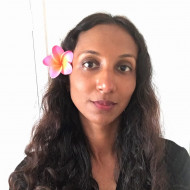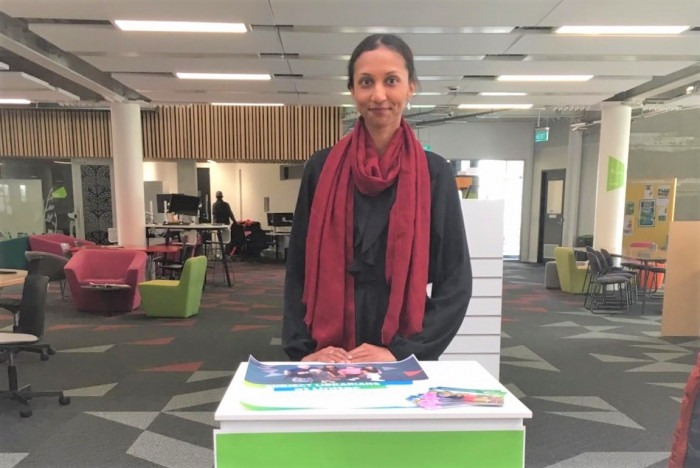Librarian
Kaitiaki Pātaka Pukapuka
Alternative titles for this job
Librarians identify information that people need, organise it and make sure people can access it.
Pay
Graduate librarians and librarians usually earn
$49K-$75K per year
Senior librarians and managers usually earn
$60K-$125K per year
Source: LIANZA, 2022.
Job opportunities
Pay
Pay for librarians varies depending on experience and level of responsibility.
- School librarians usually earn $25,000 to $30,000 a year, but only work during school terms and hours.
- Graduate librarians usually earn between $49,000 and $55,000.
- Librarians usually earn $50,000 to $75,000.
- Senior librarians usually earn $60,000 to $89,000.
- Community library managers can earn from $60,000 to $125,000.
Source: Library and Information Association of New Zealand Aotearoa (LIANZA), 2022.
- PAYE.net.nz website - use this calculator to convert pay and salary information
- Employment New Zealand website - information about minimum wage rates
(This information is a guide only. Find out more about the sources of our pay information)
What you will do
Librarians may do some or all of the following:
- help customers or students to find information and items they need
- plan and manage library services
- select and buy books and other items and classify them
- update and maintain electronic resources and databases
- research information for customers or students
- support customers to access information on their own devices
- organise or run training courses and events
- manage a library's website and social media channels.
Skills and knowledge
Librarians need to have knowledge of:
- how to evaluate, organise and locate information
- te ao Māori and te reo Māori
- the range of material in their library
- how to do research
- computerised information systems, such as library software and subscription databases and resources for specialist subjects
- how to protect library materials from damage
- event management
- how to teach a wide range of learners, including children, migrants and older people.
Working conditions
Librarians:
- usually work regular business hours, but may work evenings and weekends and do shift work. School librarians work in term time only
- work in libraries, offices and information centres
- may travel locally and nationally to community meetings, library conferences and seminars.
What's the job really like?

Sana Saleem
Subject Librarian (Pacific)
A rewarding career
I always wanted to be a librarian and I find my mahi very rewarding – serving our staff and students and helping with their information and research needs.
Librarians are cool – we connect people to library resources and we teach information literacy – a highly transferable skill which helps our students succeed at work.
Students at the heart of what we do
I love interacting with staff and students.
I look after the Pacific collection, help Māori and Pacific staff, look after library resources and provide inter-library loan services.
Student job led to my career
I worked part time at the University of Auckland Library while I was a student and my passion for a library career grew into a decision to become an academic librarian.
I joined Unitec Library and worked at all three of their branches. This advanced my skills and knowledge as a specialist academic librarian.
Upskilling through postgraduate study
I did my Master of Information Studies (MIS) through distance study (part time for three years) while living in Auckland.
My advice
Try to get some library experience in an assistant or voluntary library role, and then make the most of the flexible training opportunities on offer.
Librarian video
Dany Miller-Kareko, Finland Paongo and Sana Saleem talk about what it's like to be a librarian – 2.00 min (Video courtesy of LIANZA)
My name is Dany and I am a public library manager in South Auckland. In libraries no two days are the same which is what I love about my job
The sort of things that I do at mahi are supporting people in the community, answering questions, helping people to find information,
looking after anyone and everyone who walks through the door.
If you're the kind of person who loves looking after your community, if you are digitally savvy, if you love people and build good relationships easily then you are the type of person who libraries work might really suit.
Mālō e lelei. Ko hoku hingoá ko Finland Paongo.
My name is Finland Paongo. I'm 24 years old. I am currently a student in Auckland University and right now I'm a library assistant at Papakura Library. The skills for, that you need for the library, firstly having the ability to work with people is really important.
You know I've learned to speak to different people every day which has boosted my level of confidence.
At the library, you know most people think that you come in and we just have us in the front and that's it, but honestly it's, it's more important than that.
Depending on the time, like just recently in Matariki, we did a lot of
Matariki activity, so there's always a constant shift.
Bula vinaka and warm Pacific greetings.
I am Sana and I'm the Pacific librarian at Unitec Library. The sort of things I do in my mahi include looking after the Pacific collection and providing access to the library service based in resources .
I love the talanoa engagement with the staff, community, and my students, and I love helping them
with anything that is library related. If you like working with people to help them find information, understanding their diverse community needs, and having digital skills then the library is the place to be.
Libraries all over Aotearoa are looking for qualified people to join them.
Learn more about the grants you can get to help you with training.
Entry requirements
To become a librarian you usually need to have either:
- an undergraduate library or information management qualification
- an undergraduate degree in any subject, and a postgraduate degree in library and information studies.
Some librarian positions require particular subject knowledge. For example:
- law studies are useful for law librarians
- New Zealand or Māori history courses are useful for librarians working with specialised collections in these areas
- expertise in information technology is needed to be a systems librarian.
Secondary education
A tertiary entrance qualification is required to enter further training. Useful subjects include English, social studies, digital technologies and te reo Māori.
Personal requirements
Librarians need to be:
- good at listening and understanding customers' requests
- analytical and good problem solvers
- good communicators who are patient with people
- able to work with different groups of people
- accurate, quick, efficient and logical
- able to work on their own or as part of a team
- good at project management and planning.
Useful experience
Useful experience for librarians includes:
- volunteer or paid work in libraries
- research or computer work
- community service
- te ao Māori and Pacific culture knowledge
- work in archives or records management
- teaching experience in early childhood and adult literacy.
Registration
Professional registration with the Library and Information Association of New Zealand Aotearoa (LIANZA) is recommended but not compulsory.
Find out more about training
- Open Polytechnic
- 0508 650 200 x 5518 or (04) 913 5948 - Amanda.Cossham@openpolytechnic.ac.nz - www.openpolytechnic.ac.nz
- Library and Information Association of NZ Aotearoa (LIANZA)
- 027 347 5326 - officeadmin@lianza.org.nz - www.lianza.org.nz
- Victoria University of Wellington
- 0800 04 04 04 - chris.king@vuw.ac.nz - www.wgtn.ac.nz
- Te Wānanga o Raukawa
- 0800 WANANGA - tetomonga@twor-otaki.ac.nz - www.wananga.com
What are the chances of getting a job?
Demand for qualified librarians
There is a high demand for qualified librarians. Many organisations are looking for librarians with tertiary qualifications to make sure their information is organised and accessible.
Retirements provide opportunities
Libraries in New Zealand have an ageing workforce. Many librarians are over 60, so vacancies are likely to increase as they retire.
According to the Census, 4,038 librarians worked in New Zealand in 2018.
Better librarian opportunities with digital and educational skills and knowledge
Chances of getting a job as a librarian are best if you have strong information technology and educational skills, as well as a wide knowledge of books.
You can further increase your job chances if you:
- have knowledge and understanding of tikanga Māori
- are qualified and willing to work in rural areas
- have work experience or have volunteered in libraries.
You can start as a library assistant or school librarian and gain qualifications while you work.
Grants for library and information tertiary study
LIANZA and SLANZA grants are available for tertiary qualifications in library and information studies.
You can apply if you're taking library and information qualifications at any level at Victoria University of Wellington, Open Polytechnic or Te Wānanga o Raukawa.
Most librarians work in public libraries
Most librarians work for public libraries and about a quarter work for tertiary libraries.
Librarians may also work for:
- the National Library of New Zealand
- libraries or information services for government departments, organisations or companies (special libraries)
- school libraries
- law libraries
- prison libraries
- museum and heritage libraries.
Sources
- LIANZA website, accessed April 2022, (www.lianza.org.nz).
- LIANZA, careers.govt.nz interview, March 2022.
- Stats NZ, '2018 Census Data', 2019.
(This information is a guide only. Find out more about the sources of our job opportunities information)
Progression and specialisations
Librarians with two to three years' experience may progress into more specialised senior roles, such as acquisitions, cataloguing, collection development or reference services.
After about five years' experience, librarians may become team leaders and manage staff, or sole-charge librarians who run school or special libraries (government, organisational or corporate libraries).
With five to 10 years' library experience, as well as management and leadership skills, librarians may manage the operations, policy and planning of library services.
Librarians may specialise as:
- school librarians
- research advisors
- cataloguers
- technology support and digital advisors
- outreach and events coordinators, literacy leads
- community experiences and diversity team leaders
- health sciences librarians
- Māori services librarians
- records and information officers
- children and young persons' librarians.
Last updated 28 March 2025


